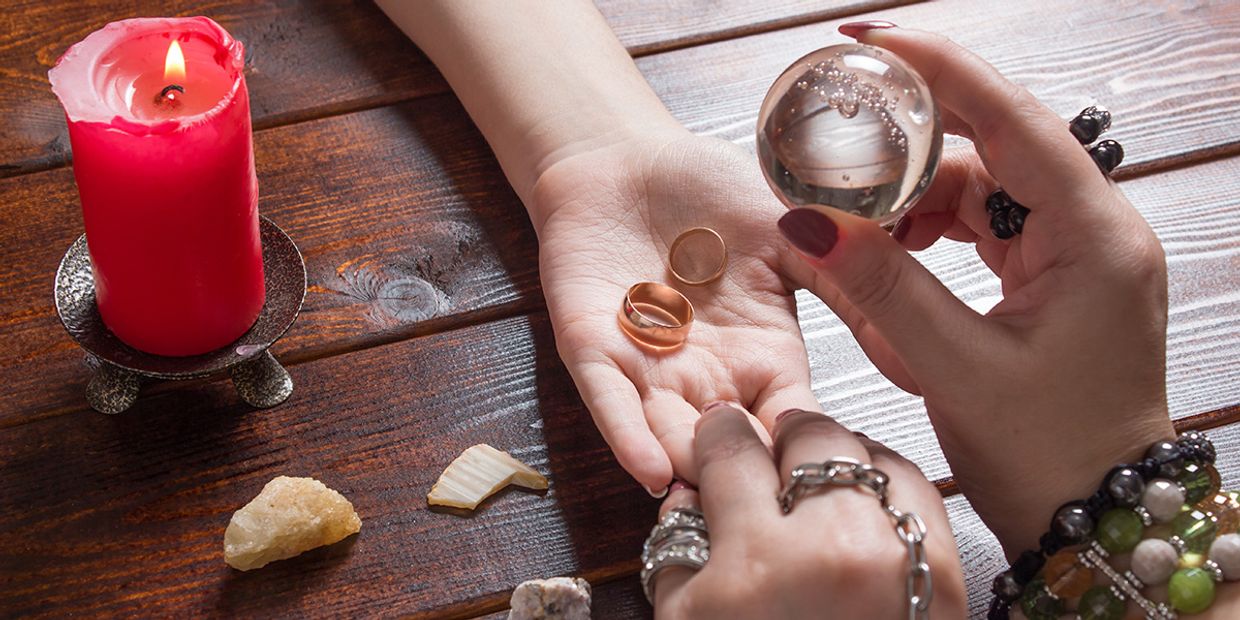
Published 16/06/2024 by Louise Emma
What Does Love Feel Like?
It can be challenging to define love as it is a very broad concept that encompasses several strong feelings and physical attraction.
Ironically, though it is multifaceted, a basic definition of love is affection, care, and attachment to something or someone. When we feel love, we often do so with positive thoughts such as happy, warm, and comfortable feelings.
One of the common feelings experienced when falling or being in love is happiness. We feel happy being in love, and life has sense and reason. We feel secure being in love because we feel safe and protected by the person we are in love with.
Read our guide on How Strong Is Twin Flame Love?
Introduction to the Spectrum of Love
The Spectrum of Love provides an opportunity to explore our emotions and consciousness, our self-understanding of love and how it relates to life and the whole of creation.
On the spectrum of love is self love, self-care, setting healthy boundaries, and prioritising yourself, which is an essential element in any healthy relationship. Self-love is not selfishness but a reminder that only when you have it can you give it or give anything.
On the continuum, the second stage is familial love: love toward siblings, parents, and even grandparents. Often unconditional, this form of eros is a source of security and support.
The third stage on the Spectrum of Love is romantic love, which is what many people think about when they hear the word ‘love’. It is a great emotional union between people, where feelings of passion, romantic love, and commitment bind two parties together in the strongest emotional bond they have ever experienced.
While many see romantic love as the epitome of love, it is important to remember that romantic love is not the only form of love.
Universal love is love for all beings, everything in the world, and every other self, material or spiritual. It is the awareness of the essential unity of all, of the inherent value and interconnectedness. From this comes the realisation that when one loves, in fact, one loves himself. This type of love underlies selfless or altruistic concern and care for other living beings.

The Emotional Landscape of Love
The landscape emotions of love are also uneven and subject to complex ups and downs, twists and turns, and tumours.
Love is a big emotion, and it can make us feel many things, including joy, happiness, arousal, comfort, and fulfilment. At the same time, love can make us feel pain, unlovable, and heartbroken.
Love is a feeling or an expression that is very human. It is in us and of us. It is individualising and universalising. From falling in love to falling out of love, finding love to loathing it, loving others to loving oneself, love is as many things as we can express in it.
The most widely recognisable love type is romantic love. Romantic love refers to intense feelings of attraction and desire for another person.
This deep connection of love is exhilarating and is often accompanied by deep feelings of euphoria and excitement, vulnerability and uncertainty, and later by feelings of trust, deep personal involvement, and insecurity at having opened yourself to another.
Love as a Catalyst: A Neurological Perspective
Fundamentally, love has powerful neuroendocrine effects. In response to love, a cascade of hormones and neurotransmitters is released, and this impacts the way we think, how we feel, how we believe and how we act. It is a brain of dopamine, oxytocin, and serotonin chemicals, inducing euphoric precepts of pleasure, trust, and attachment.
Moreover, research has revealed that being in love physically reshapes the brain.
People in love have elevated activity in brain regions that process reward, motivation and pleasure, and studies demonstrate that long-term relationships bring perks, too, stimulating activity in the prefrontal lobes of the brain (important regions for decision-making, planning, and managing impulses).
Perhaps most importantly, love also has the capacity to point the way forward and chart a direction. It can spur us into action, helping us deal with the impediments to our desires and flourish. Love can lead us to sacrifice for the sake of cherished others, strive for the affection of a romantic partner, or nurture a child.
Love's Expression: Languages of Affection
Love expression is the language of affection worldwide. Finding the right words or gestures is a game that can be played everywhere and in any language. Four exciting words of affection are widely used throughout the world to express love and feelings of sexual or emotional intimacy.
One of these languages of love is physical touch. Many Western countries use physical touch to express affection. Hugs, kisses, holding hands, and other physical touches are essential ways to show love and affection for someone. In comparison, people in some Eastern cultures may keep physical touch private.
Another language of love is words. We need to use words to communicate love. We often hear comments like: ‘Actions speak louder than words,' but in most cultures, words can be a powerful and important language of love. It could be as simple as saying: ‘I love you,’ or conveying your feelings of excitement.
Using words to express love and affection is common in many cultures. Saying "I love you," complimenting one's partner, and expressing gratitude are all essential ways to communicate emotional intimacy.
Learning about the languages of love can enrich our cultural literacy about the manifold ways in which love and care are culturally expressed.

The Power of Connection: Interpersonal Bonds in Love
Studies abound, demonstrating that interpersonal bonds contribute to love. For instance, various studies have shown that successful couples are significantly happier and have higher life satisfaction than singles.
The better a person’s interpersonal connections, the better their health and well-being (lower stress, better cardiovascular health).
It is worth pointing out, and research evidence exists to show, that platonic relationships seem to evoke just as much warmth in us as romantic ones.
Moreover, the power of connectedness can be especially influential in how we see ourselves and our identity. Researchers have reported that the more people say they are interconnected with others in their lives, the more they are likely to have higher levels of self-esteem and self-worth for a better quality of life.
Intimacy and Vulnerability: Love's Inseparable Companions
Intimacy and vulnerability are two interwoven aspects of love. Intimacy is the closeness or connection between two people.
Vulnerability is the exposed nature of a person’s fears, weaknesses, and emotions. These two components of love present us with an opportunity to get closer to people but also leave us wide open to hurt and disappointment.
Psychologists have long known intimacy and vulnerability to be essential ingredients for mental health and flourishing in a relationship because they help you feel closer to other people and make you feel more understood.
In one recent study by Fitness Junkie, the University of California, Santa Barbara discovered that the more intimate and vulnerable couples claimed to be in a relationship, the happier they were in life in general.
In other words, the closer you feel to another person, the more connected you are, the easier it becomes to trust them — and the easier it is for them to trust you in return, reciprocating the gesture.
Love Beyond Romance: Familial and Platonic Bonds
Love is more than just romantic and more than just exclusive to lovers. For those who have not experienced the blessedness of marriage, there are other forms of attachment, often family, that are just as important and life-changing, binding us to other human beings for better or worse, but mostly for life.
As crucial as erotic love is, neither familial nor platonic love is optional to a life well and fully lived. Neither is as potentially perilous nor inhibiting of our happiness as erotic love can be. Both can lead to an uninhibited, celebratory, innocent joy, a profound sense of value and admiration, and a feeling of being whole and interconnected with everyone and everything around you.
Exploring Sensuality and Sexuality in Love
In love, the desire to explore sensuality and sexuality is part of a universe of possibilities with its own psychological, social, and cultural complexities.
Sensuality is the pleasure, intimacy, and connection of touch, smell, taste, sound, and sight. Sexuality is the biological, psychological, and social aspects of sexual desire, arousal, and behaviour.
The basic human need for closeness is at the foundation of sensuality and sexuality in love. Research on attachment and intimacy in the 1980s and ’90s showed that physical touch and being held by another human being were vital to both the formation and maintenance of love.
Touching triggers that wonderful ‘love hormone’ oxytocin, which builds feelings of bonding and connection, a sense of security, trust, comfort, and pleasure.
But since sensuality and sexuality are highly culturalised, meaning that tradition, values, and taboos condition them, they are also restricted by cultural expectations.
Some cultures encourage talk about sex as a normal, even laudable, part of life. Others see it as something shameful. This means that individual sensuality in an intimate context is marked by the attitudes that apply to the broader society.
Gender roles and expectations also restrict our sensual possibilities.

Unravelling the Complexities: Unrequited Love and Heartbreak
People experience these emotions regularly, and scientists such as psychologists, sociologists, and novelists try to provide insight as to what incites these feelings.
Unrequited love refers to the love that one individual feels for another with no reciprocity. On the other hand, heartbreak can be described as the pain and discomfort experienced at the end of a romantic relationship.
Experiencing unrequited love and heartbreak can be a disorienting and distressing experience. It can have a negative impact on an individual’s mental health and emotional well-being.
Research has revealed that unrequited love has been linked with rejection, low self-esteem, and feelings of grief and depression following heartbreak. Grief, anxiety, insomnia, and loss of appetite can be triggered by heartbreak.
But if you’re experiencing intense feelings like this, it’s essential to open up to friends and family or turn to a psychic relationship expert to help you through the waves of emotion.
You must keep reminding yourself to take care of yourself and be gentle with yourself and that healing is a process. It doesn’t happen overnight.
Love's Evolution: Nurturing and Sustaining Relationships
It takes a lot of work, effort, and commitment by both partners to nurture and sustain a relationship. They must talk to each other, respect each other, listen to, and resolve issues and conflicts, and evolve and change as individuals and as a couple.
Another consistent practice is building and sustaining intimacy between partners, involving physical and psychological aspects. This includes vulnerability, experiential exposure (i.e., access to each other’s thoughts, feelings, and fears), affection (e.g., holding hands, hugging, cuddling), and quality time (e.g., spending time having meals together, going on walks).
A third ingredient is trust. Trust is the great enabler of any healthy relationship. Trust is most powerfully built through consistent honesty, dependability, and loyalty. It’s about being open and authentic with each other and keeping each other’s yeses, boundaries, and other commitments sacred.
The Role of Communication and Understanding
Good communication and understanding are the most important assets in a relationship. They strengthen a relationship, create positive feelings, and are key to its longevity. Communicate as often as you can, and let your partner know your interest through writing and talking to each other.
Good communication is essential in a relationship. Couples should discuss everything or rather anything to stay on the same track and eliminate issues. Bad communication is the epicentre of misunderstandings. Moreover, couples seeking equality should talk about their desires and needs.
Communicating within a relationship is essential in expressing feelings and strong emotions and seeking intimacy, especially for couples who live far apart.
Therefore, if you want your personal relationship to last forever, you should communicate and understand yourself and your partner.
The Universality of Love: Cross-Cultural Perspectives
Love is a universal experience, one central component of social and interpersonal experiences. However, not all cultures and cultures experience love universally in the same ways. Despite the existential ubiquity of love, within culture and society, there is enormous variation in the form and expression of being in love, romantic love, and familial love.
Understanding the source and cause of the universality of love became the subject of much cross-cultural research since the beginning of cross-cultural psychology, as scholars tried to determine to what extent and under what conditions the experience and expression of love were similar and different across cultural groups.
Despite such cultural differences, the core feeling of love is also the same globally.
Scientific research has found a correspondence between romantic love across cultures. People from different cultures activate The same brain regions as they experience love, indicating that the same feelings are present regardless of the cultural context.
Love Readings
A love reading from Trusted Psychics will help the playback of a range of emotions to reflect your genuine emotions and feelings towards the person you care for.
The ability of a psychic to reach into your energy at this very moment is fantastic. So is their ability to give you insight into where your mind and your heart really are and what you are truly feeling for someone. They can help you find out if you are avoiding and blocking your natural emotions from flowing.
A love reading can also give you pointers for how to move forward in the relationship. You can learn a lot from the expert love psychics at Trusted Psychics about how to communicate better with your mate, how to overcome your obstacles or problems with your partner or get deeper into a loving relationship with them.
Psychics can give you a broader perspective on your love affair and what life together might entail over time.
Furthermore, love readings can be revelatory, empowering you to understand yourself better. A genuine live psychic reader can help you identify what you’re looking for in a partner and in a relationship and how to make those desires tangible.

FAQs
What Does Really Love Feel Like?
Ultimately, love is about being open and vulnerable, feeling our way toward the prospect of another person. It isn’t always easy, and love doesn’t always feel equally beneficial. Still, the dividends can be extraordinary: sensation and solace, feeling at home with another person, and a profound sense of being known.
How Do I Know If the Feeling Is Love?
If you are unsure whether the feeling you experience is love, then you are in the company of many others. Yet, if you know what to look for, it can be surprisingly easy to make the distinction.
One of the telltale signs of love is a heightened emotional bond and attraction between two people that ordinarily doesn’t hinge on sexual attraction alone but is instead underpinned by a shared understanding of, solidarity with and time for each other (that is, ‘deep knowledge of another person’s life and character’ that ‘engenders concern, care and, perhaps, a readiness to sacrifice for the other’s sake’).
The second approach focuses on the fact that, together with a feeling of attraction, the emotional experience of love is also linked with feelings of devotion, commitment, and loyalty to the other person.
Devotion to the other person takes shape in certain forms of action, such as the wish to live together, support each other, and make sacrifices for the sake of one’s beloved.
Also, love makes people believe that life is pleasant, happy, and joyful. Many people regularly articulate that love is the most significant source of help, and those who are in love tend to argue that their lives are happy and fantastic when they are in love.
Third, emotions of love involve a strong desire to be together with the other person, both physically and effectively. This desire is frequently linked to strong romantic attraction, but it is often also thoroughly permeated by longing – a wanting to know the other person deeply and to share a lasting love.
How Do You Know If You Fall in Love?
Love is a combination of mental, physical, emotional, and social processes that vary from person to person. Still, some typical indicators and experiences can help you determine whether you have fallen for someone.
You may find yourself strongly physically attracted to the person. For example, you might feel butterflies in your stomach, your heart might beat faster than usual, or you might sweat in your palms. You also find yourself checking your phone to see if they will reply to a text. Also, daydreaming about the person and longing for them.
But falling in love involves an emotional connection with the person, too: a feeling of safety and security, a willingness to let your guard down, share your deepest thoughts and feelings, and express your most hidden needs and desires, a strong sense of empathy, a deep understanding of the other person, and a desire to care for, support, and nurture the other no matter what.
Second, falling in love can be described by a sense of mutual respect and admiration: You may feel that this person is intelligent, funny, or has a unique character, and you can find yourself respecting them for personal values, ideals, and a new, fresh attitude towards life.
How Do You Feel If You Are in Love?
To be in love is to look deep within your being and discover a whole new side of yourself that had long been both needed and neglected.
You find yourself more willing to sacrifice for your romantic partner because you both need and deserve each other. You just ‘click’ in a way that improves your interpersonal interactions.
You slowly come to know a world outside of yourself and find yourself opening to your partner, becoming equally more patient, forgiving and willing to listen and compromise to build and nurture your relationship.
Speak to one of the expert live psychic readers at Trusted Psychics to discover if you are really in love. You can book a reading at any time. There is no need to make an appointment. Just make a phone call or connect with professional psychics on the live messenger service to have all your questions answered.
How To Contact A Trusted Psychic
Phone a live Psychic 24 hours a day
View all our live phone psychic and tarot readers online.
View All Live readersMessage a live Psychic 24 hours a day:
View all our live messenger psychic and tarot readers online.
launch messengerRecent Articles From the Trusted Psychics Blog

50 Affirmations to Get Over a Breakup
To find peace after a breakup or if you're struggling with an ex, we offer 50 powerful affirmations to help you navigate the journey of love and breakups.

Healing a Broken Heart
Learn how to cope with a traumatising heartbreak and move forward. Find out how to heal your broken heart and love again with our psychic love experts.

Do Love Potions Really Work?
Learn the truth about love potions and their effectiveness. Explore the concept of them, and learn how to approach love potions with caution and intention.

Forbidden Love: All You Need to Know
Discover the allure and complexities of forbidden love. Explore the reasons why some relationships are considered taboo and learn how to navigate these challenges.

Why Am I So Unlucky in Love?
Feeling unlucky in love? Discover common reasons behind romantic struggles and learn how to break the cycle and foster healthier relationships.

Creating a Love Affirmation
Discover how to create and use affirmations on a daily basis to love yourself and find love in your life with Trusted Psychics professional readers today.

